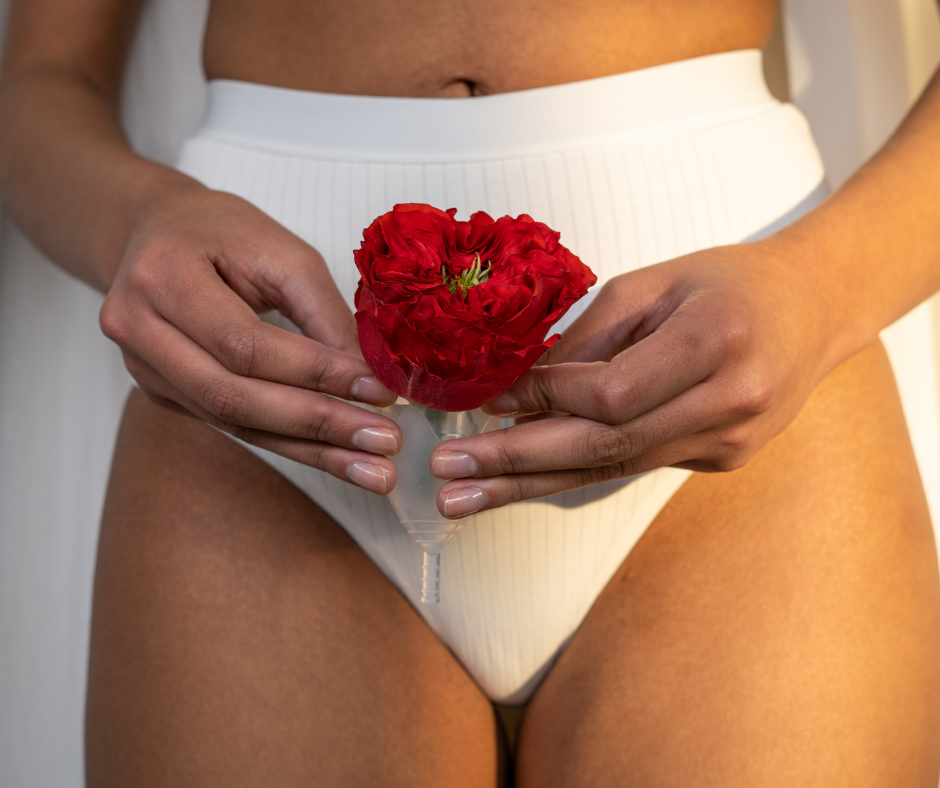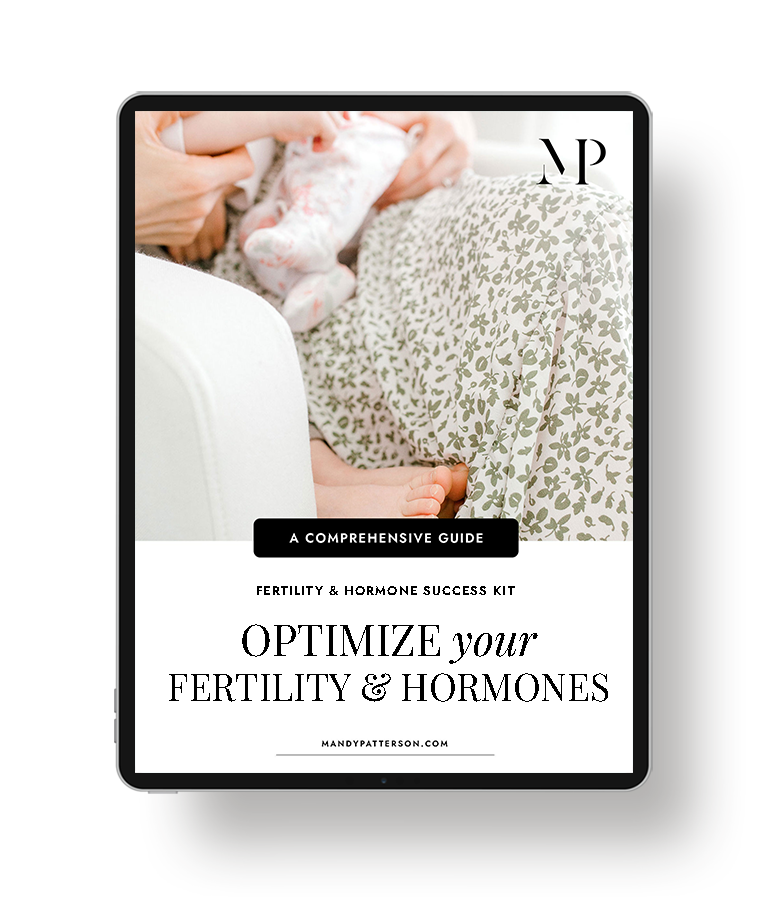It’s safe to say that a woman knows what happens to her body once a month for the majority of her adult life. Women have about 450 menstrual cycles in their lifetime. It’s not something that we’re likely to forget about. While most of us know the basics of what goes on, do we actually know the details? Do YOU know the four phases of your menstrual cycle?
If you’re like most women, you probably only know about two of the four phases: ovulation and menstrual (or when we get our period). There’s no shame in not knowing the details, it’s not like we get a course in high school, and some people still view periods as a taboo subject.
The fact of the matter is, there’s so much more to the menstrual cycle than the bloody show we get every month. Understanding female reproductive hormones can truly empower women to take their health into their own hands.
In this article, we will discuss the four phases of your menstrual cycle and the two most important female reproductive hormones: progesterone and estrogen. If you’re ready to deep dive into the female reproductive cycle keep reading!
Menstrual Phase
The menstrual phase is the phase you are probably most familiar with. This is the first day of bleeding of your “period.” For many of us, we have our first period around age 11-14 and then every month unless we’re pregnant or begin menopause around age 50.
On this day the hormone progesterone decreases dramatically while estrogen peaks. This causes the uterine lining to “shed” which comes out in the form of “your period.” The Menstrual phase usually lasts anywhere from 3 to 7 days.
Symptoms & Lifestyle Support
During the menstrual phase, you will experience low energy levels. You will likely want to rest as much as possible. When estrogen peaks you may feel backaches, fatigue, and cravings. As your estrogen levels drop your mood and symptoms will level out as well.
Your body loses the most minerals during this phase of the reproductive cycle. Nourish it with soups and stews made with real bone broth and choose more root vegetables over processed carbs and sugars. Gentle exercises like yoga and walking are great during this phase!
RELATED: SEVEN WAYS LIFESTYLE CHOICES CAN AFFECT YOUR REPRODUCTIVE HEALTH
Follicular Phase
This phase occurs directly after the menstrual phase. It’s when your body prepares to release another egg in preparation for a potential pregnancy. The follicular phase usually lasts between 7 and 10 days.
During the follicular phase, progesterone and estrogen are both low. This signals your pituitary gland to release a hormone called the Follicle Stimulating Hormone (FSH). The follicles, which contain eggs, in your ovaries are stimulated by this hormone to mature in preparation for releasing another egg.
Symptoms & Lifestyle Support
Estrogen and testosterone both start to rise during this phase. They bring you a boost of energy and improve your mood, too. Testosterone stimulates your libido while estrogen makes you feel extroverted and suppresses your appetite.
Take advantage of the fact that you will have more energy during this phase. Try new things and engage in more intense exercises! You will most likely desire light foods so try adding some fermented foods, fresh fruit, and salads to your diet.
Ovulation Phase
Ovulation is when a mature follicle, which is part of the ovary, discharges an egg. It’s the culmination of what your body has been working for throughout the last few weeks. In the ovulation phase, your follicle produces more estrogen to prepare the body for pregnancy.
Around days 12 and 14 of your reproductive cycle estrogen peaks and triggers the release of the luteinizing hormone (LH). This LH surge causes ovulation.
Your reproductive cycle will go one of two ways during this phase.
Either the egg travels down the fallopian tubes and implants in the endometrium (uterine lining) and is fertilized by sperm. Or, it is slowly dissolved and passes through your body and is shed with the endometrium during your menses.
Symptoms & Lifestyle Support
Testosterone also surges during this phase to increase your libido and vaginal discharge increases to support reproduction should it occur. As your hormones shift, this becomes the time of the month where you feel most social and outgoing.
Building strength and stamina are great areas of focus for exercise. Get a good sweat going as your body needs to eliminate excess estrogen. Optimize your detoxification pathways and glutathione production with raw veggies, fresh greens, and fruit.
Luteal Phase
The luteal phase can be considered the “preparation” phase. It lasts 10 to 14 days. Your body will adjust its response based on whether the egg was fertilized during ovulation to begin a pregnancy or the next menstrual phase.
During the luteal phase, progesterone rises which keeps the uterine lining intact and signals to the pituitary to slow down the FSH/LH so only one egg is released.
If the egg was fertilized the ruptured follicle, now called the corpus luteum, releases progesterone and estrogen to prepare for pregnancy. If pregnancy occurs then progesterone will remain high. If the egg was not fertilized then progesterone and estrogen drop and menses occur – or the beginning of the menstrual phase.
Symptoms & Lifestyle Support
With both estrogen and progesterone higher together during this phase you will likely feel more awareness and attention to detail. You won’t have as much energy but you will still have some energy to burn. Try exercises like power yoga, weight training, or spin class. Your body will appreciate leafy greens, B vitamins, and magnesium to help with cravings leading to the menstrual phase.

Your ovaries, adrenal glands, and some fat tissue are the main production points for estrogen while progesterone is produced in the ovaries and adrenal glands.
How Estrogen And Progesterone Affect Your Reproductive System
As you can see, estrogen and progesterone are key players in your menstrual cycle. They are the main female sex hormones. Your ovaries, adrenal glands, and some fat tissue are the main production points for estrogen while progesterone is produced in the ovaries and adrenal glands.
Estrogen moves throughout your body and affects nearly everything. Meanwhile, progesterone is the counter to estrogen. It is the more “calming” hormone of the two. Both progesterone and estrogen work together to balance your menstrual cycle. Issues can occur in your menstrual cycle when either of these hormones is out of balance:
Symptoms of Estrogen Dominance
- Fibrocystic breasts
- Weight gain
- Heavy or irregular menses
- Mood swings
Symptoms of Low Progesterone
- Irritability/ emotional
- Breast tenderness
- Clots in menstrual blood
- Short periods
- Anxiety
- Depression
- Insomnia
- Inability to maintain a pregnancy
Work With A Holistic Health Coach
As a certified Holistic Health Coach and Naturopathic Doctor, I make it my mission to help women find empowerment through taking charge of their health. There ARE natural solutions to your hormonal imbalances and alternatives to conventional contraceptives. Don’t be scared to take your health into your own hands!
If you’re looking to understand and bring your hormones back into balance reach out to me!
Mandy Patterson

















